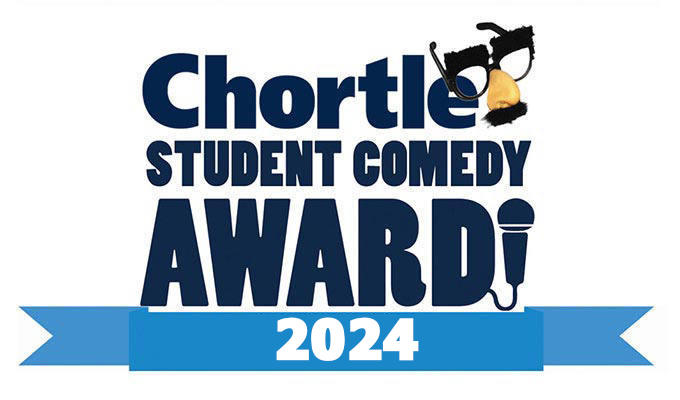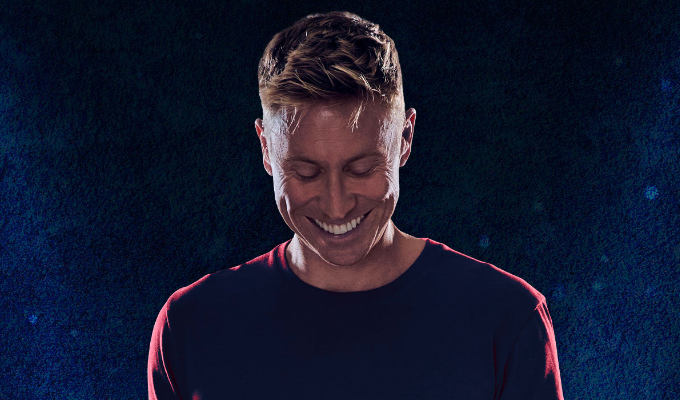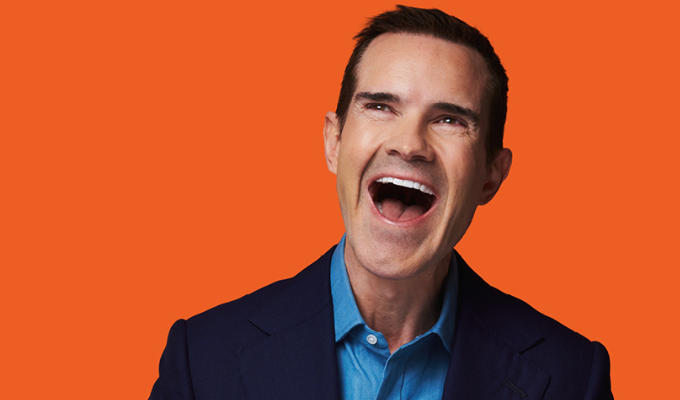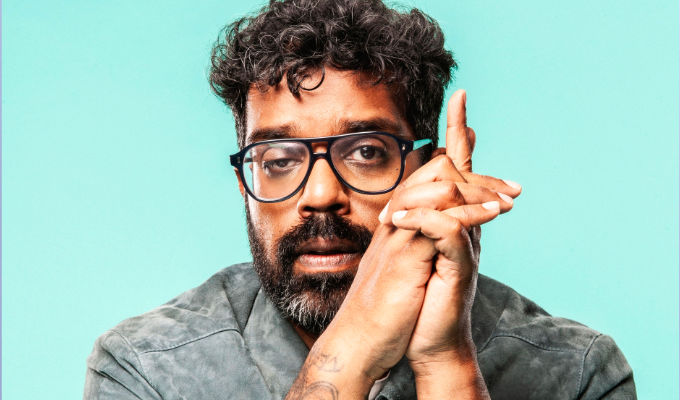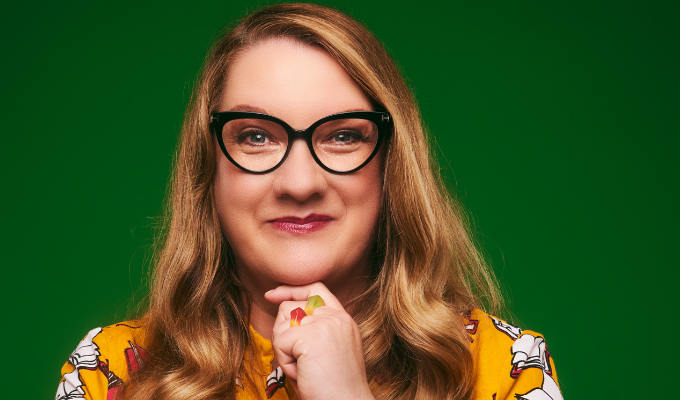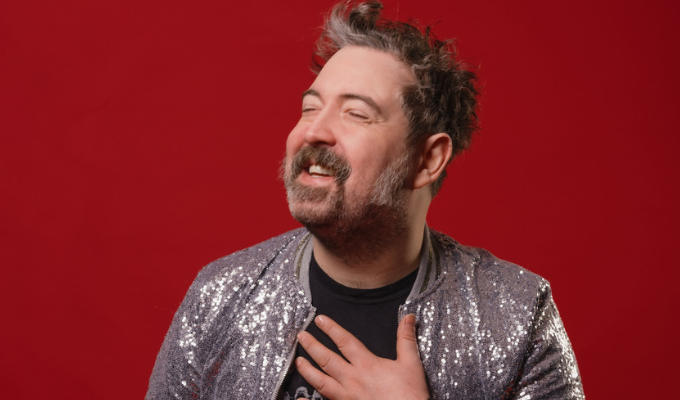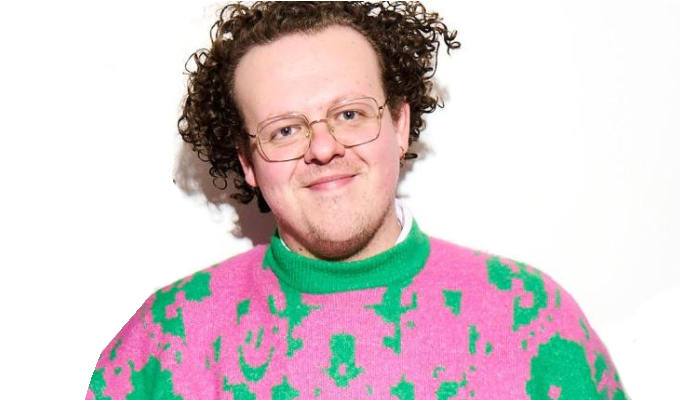 © Channel 4 / Rob Parfitt
© Channel 4 / Rob Parfitt 'The struggles are articulated in a funny way – not drenched in trauma porn'
Jack Rooke on the return of Big Boys
Big Boys – Jack Rooke’s semi-autobiographical comedy drama – is returns for a second series this weekend. It stars Dylan Llewellyn as Jack, a shy teenager exploring his sexuality for the first time and Jon Pointing as Danny, a more laddish mature student dealing with depression. Here Rooke talks about the show…
How did you find the response from series one?
I always knew I [wanted to] find a channel that would let me write the jokes I wanted to write and let me have the niche references to Gamu from The X Factor and Alison Hammond as a fish, and [have] the confidence to not just see Big Boys as just a gay show or just a mental health show. Channel 4 were so amazing at understanding the whole show and all the different types of representation within the mix.
I always felt I was backing a strong horse, but I definitely did not expect for the response critically to be as good as it was and then to have six Bafta nominations for a series one.
I love when people I've really admired in comedy are writing about their love for the show but really my favourite reaction is just from geezers that are so happy to see themselves in Danny, whether it’s those sorts of struggles being articulated in a way that's funny, and not just drenched in a kind of trauma porn.

To me, is always the nicest thing when somebody says ‘Oh, my husband really liked it’ or ‘My male straight friends really got it’ because I never want to limit myself as somebody who just writes about the gay experience, I want it to be as broad and open as possible.
Series two comes off the back of all of that lovely reaffirming praise for series one where I've just tried to make it bigger and better and more inclusive than ever.
How do you instil comedy into topics such as broken homes and grief?
I'm a real sitcom, comedy-drama fan. Growing up me and my dad would just constantly watch sitcoms, whether that be Father Ted, or the Vicar Of Dibley or Only Fools And Horses.
Comedy was such a huge part of my cultural experience growing up, I never went to the theatre. I never watched plays, or opera or dance or never went to art galleries, never went to museums, but I saw every sitcom. And to me that's just as culturally important and relevant, and I felt like it's such a good space to bring difficult topics into the forefront and to [address] things that are almost quite polarising.
When I went through losing my dad, I certainly felt like there wasn’t much stuff that I could watch where I could really relate to that experience.
The only rule I really had with Big Boys was that if I was going to do something that was very emotionally charged, or potentially dealing with traumatic themes, that there still had to be loads of jokes in there. That for every sad moment, it had to have a massive gag after it, because I still want to write a comedy.
We get to see a lot more from the other characters in this series, what made you expand on their stories?
In series two, I’ve written up the character of Cousin Shannon, played by Harriet Webb, because for me, it was really important that there was one character in their 20s who didn't go to uni, and who wasn't pursuing higher education but was still just as ambitious even when they're starting a family and having a baby.

Like so many working-class women in my life who've helped bring me up …. even my cultural heroes … there are women that weren't necessarily afforded the opportunity to go to uni, but still had phenomenally successful lives.
For me, it was just very important to have a character like Shannon in the mix. I wanted to write a working-class funny woman who's still daft and still mad and still saying outrageous stuff, but ultimately has a bit of drive and a bit of determination to her. I really wanted that other option to not go to uni to be just as valid as [going}
The same with Laurie. When we were filming the scenes with Ian Burfield [who plays that role of Jack’s father, who died from cancer before Jack started university] and Harriet they had such good chemistry.
I mean, Harriet can literally have chemistry with a glass of water. She is such a phenomenal, comedic and dramatic actor, and the chemistry between her and Laurie was so nice. It really made me cry because it just took me back to losing my dad and realising that my dad was obviously my parent, but to my cousins and to my friends, and to loads of other people he was such a paternal figure.
It was really lovely to watch him say things like ‘you're a go getter’, ‘you're beautiful’ and to have all of that reaffirming stuff.
Was series two something you considered when writing series one?
Series two is definitely a big dream because I've always felt in my career, a bit of a one-trick pony, because I went to Edinburgh for the first time in 2015 with the show about grief, and then went again in 2017 with a show about grief and I just felt like I would get the odd kind of cheap shot or a little kind of dig being like ‘you just write about one thing’. But actually, it took quite a lot of courage and ambition.
I found writing to be such a hugely cathartic escape. When I was 18, I started writing funny, silly poems about grief and about my dad, and you know, come turning 26 I've made that into a TV series.
When I was a teenager in the midst of it all, I remember thinking no one's told a story like this about what it's like to lose someone at this age, and how it teaches you what mortality is at such a formative period of your life that does shape how you then become an adult. It shapes your relationships and your friendships. It makes you cherish people so much more. And it does make you realise the importance of chosen family, which I think is ultimately the theme of series two, these people who are all kind of misfits, who shouldn't necessarily all like each other, but who just find a really deep affinity and love and care.
I've been so chuffed at how broad the response has been. So, series two was always a bit of a pipe dream and I'd like to write more. I feel like I have taken these stories from literally performing them above pubs in little theatres. That journey to me is something I'm incredibly proud of and it's made me feel like it was worth it.
A lot of the first series was based around your experiences – how much does series two deviate from that?
Series two is still heavily drawn from my own life. There's definitely stuff that's very fictionalised and that's the stuff I really enjoy.
Writing is coming up with new sort of storylines or new kind of exciting adventures, but a lot of the stuff that I think resonates with people, it's the stuff that's real, like, I did live with someone who was webcamming to make money and I'm very sex worker positive and so it's fun to try to write that sensitively but make it really funny because it is funny.
Even the work experience stuff. I used to work on a youth phone-in radio show when I was in my early 20s, and we used to get mad people calling up. Then there’s the Blue Shed which is based on the property guardianship I lived in. In most of my 20s it was the only way I could afford to live in London. So that is drawing on communal living where everything's falling apart, there's never any space for anything and there is a table tennis table in the middle of the hallway, that sort of madness.
So, a lot of its drawn from personal experience still, but it is fun for me to come up with other narratives. I really love that Big Boys is a sort of 50/50 drawn from real life but also just a creation of fumbling around.

We get a few more cameos from you, what is the story behind that?
The whole narrator device is directly taken from my 2017 Edinburgh show, where I spoke to the audience as ‘you’.
For me, it's looking back at something nostalgically and I like having a narrative device that's quite ambiguous. The narrator is often [has] the function of [voicing] the things that sometimes we wish we had said or realised at the time.
What is your favourite line from the show?
’I, for one ,will not be calling her Cheryl Fernandez Versini’
• Big Boys returns to Channel 4 at 10pm on Sunday
Published: 9 Jan 2024

